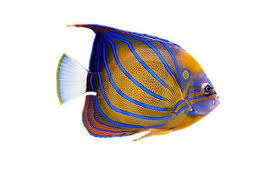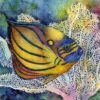Imperial Poetry: A Glimpse into the World of Royal Poets and Their Works

Throughout history, many monarchs have not only governed their realms with authority but have also wielded the delicate power of words, composing poetry that reflects their intellectual depth, personal experiences, and political philosophies. From the courts of China to the palaces of Europe, emperors and kings alike have turned to poetry as a means of self-expression, cultural representation, and even political maneuvering. In this article, we will explore some of the most renowned poems composed by emperors, the motivations behind their poetic endeavors, and the lasting legacy of their literary contributions.
1. Emperor Taizong of Tang – China
One of the most famous poet-emperors in Chinese history, Emperor Taizong (Li Shimin) ruled the Tang Dynasty from 626 to 649 CE. His reign was marked not only by military conquests and political reforms but also by a deep appreciation for literature and the arts. Known for his wisdom and military prowess, Taizong was also an avid poet who wrote many poems during his lifetime. His works reflect the profound understanding of governance, nature, and human emotions that he developed over his reign.
One of his most famous works is the poem “Chengde” (呈德), which expresses his sense of responsibility as a ruler and his connection to the natural world. The poem is a blend of Confucian ideas about governance and Taoist thought on the harmony between humanity and nature. It emphasizes the importance of ruling with virtue and maintaining balance, a sentiment that Taizong himself adhered to during his rule.
Another well-known poem by Emperor Taizong is “The Song of the Capital” (长安曲), which reflects his admiration for the grandeur and prosperity of the capital city, Chang’an (modern-day Xi’an). Through this poem, Taizong extols the achievements of the Tang Dynasty and the flourishing of Chinese civilization under his leadership.
2. Emperor Qianlong – Qing Dynasty, China
Emperor Qianlong (1711-1799) was the sixth emperor of the Qing Dynasty and one of China’s longest-reigning monarchs. Known for his cultural patronage, Qianlong was not only a skilled ruler but also a prolific poet. During his reign, he promoted the flourishing of the arts and engaged in a vast literary output, writing thousands of poems, many of which celebrated his rule and the prosperity of the Qing Empire.
One of the most iconic examples of Qianlong’s poetic prowess is his work “A Poem on the Scenic Views of the Summer Palace” (颐和园诗). The poem reflects his deep affection for the imperial gardens of the Summer Palace in Beijing, which he personally designed and expanded. In the poem, Qianlong marvels at the beauty of the landscape and the architectural splendor of the palace, using vivid imagery and classical Chinese poetic forms to describe the scene. His poetry often blended personal reflection with political themes, demonstrating his ability to communicate both his thoughts on governance and his deep connection to China’s cultural heritage.
Qianlong also frequently wrote poems about his military campaigns and the expansion of the Qing Empire. One such poem, “Victory at the Battle of Dzungaria”, celebrates his military successes and the consolidation of Qing power in Central Asia. His poetic style was influenced by traditional forms such as the regulated verse (律诗) and parallelism, and he was known for his elegant and erudite diction.
3. Emperor Meiji – Japan
Emperor Meiji (1852-1912) was the 122nd emperor of Japan, and his reign, known as the Meiji Era, marked a period of modernization and transformation for Japan. While his reign was primarily focused on political and economic reforms, Emperor Meiji also composed a number of poems, many of which reflect his personal sentiments and the profound changes Japan was undergoing during the late 19th and early 20th centuries.
Emperor Meiji’s poetry is typically associated with the waka and haiku forms, traditional Japanese forms of poetry that emphasize nature, emotion, and brevity. One of his most famous poems is “In the Quiet Morning” (朝の静けさ), a reflective piece that conveys the emperor’s deep appreciation for the natural beauty of Japan. In this poem, Emperor Meiji contemplates the changing seasons, which serves as a metaphor for the changing state of the nation. His poetry often expressed his desire for Japan to embrace modernity while retaining its cultural and natural identity.
Another significant poem by Emperor Meiji is “The Sails of the Ship” (船の帆), which represents his vision for Japan’s future. Written during a time when Japan was transitioning from a feudal society to a modern industrial power, this poem speaks to the emperor’s hope for Japan’s rise on the world stage. It uses the image of a ship’s sails to symbolize Japan’s potential for growth and progress.
4. Emperor Kōmei – Japan
Emperor Kōmei (1831-1867) was the 121st emperor of Japan and the father of Emperor Meiji. His reign occurred during a turbulent period in Japanese history, as the country was experiencing increased foreign pressure and internal unrest. Despite these challenges, Emperor Kōmei was a deeply spiritual and contemplative monarch, and his poetry reflected his profound sense of duty and concern for Japan’s future.
One of Emperor Kōmei’s most famous works is the poem “The Lantern of the Capital” (京の灯), in which he expresses his deep concern for the fate of the imperial court and the nation. The poem is infused with a sense of melancholy, as the emperor laments the political instability and the encroaching influence of foreign powers. The lantern, which symbolizes the light of the imperial family, serves as a metaphor for the hope and continuity of Japan amidst the dark times of political upheaval.
Emperor Kōmei’s poetry often reflected his strong attachment to traditional values and the importance of preserving Japan’s cultural heritage. His work was less focused on the themes of personal enjoyment or nature and more on national duty and the preservation of the imperial institution.
5. Emperor Yongzheng – Qing Dynasty, China
Emperor Yongzheng (1678-1735) was the fourth emperor of the Qing Dynasty, and his reign was characterized by political stability, economic growth, and cultural development. Like his predecessors, Yongzheng was a strong patron of the arts and literature, and his poems often reflected his interest in the governance of his empire and his devotion to Confucian principles.
Yongzheng’s poetry was influenced by his deep understanding of Confucian thought and the moral obligations of rulers. One of his most well-known poems, “The Long Road of Governance” (治国漫道), explores the complexities of ruling an empire and the challenges faced by a wise and virtuous leader. The poem emphasizes the importance of ethical behavior and the need for rulers to stay true to their principles in the face of adversity.
Emperor Yongzheng’s poetic style was characterized by simplicity and clarity, often using everyday imagery to express complex philosophical ideas. His poetry was also deeply introspective, reflecting his personal struggles with the responsibilities of ruling and the desire to ensure the prosperity of his people.
6. Emperor Akbar – Mughal Empire, India
Emperor Akbar the Great (1542-1605) of the Mughal Empire was one of the most illustrious rulers in Indian history. His reign, which spanned from 1556 to 1605, was marked by military success, religious tolerance, and cultural flourishing. While Akbar was not primarily known as a poet, he was deeply interested in the arts and had a strong literary culture at his court. Several of his poems, though not as numerous as those of other monarchs, reflect his philosophical outlook and his understanding of governance and spirituality.
One of Akbar’s most famous poetic works is “The Spirit of Righteousness”, a poem in which he discusses the importance of justice and moral integrity in ruling. The poem reflects his belief in the divine right of kings and his commitment to fairness and equality, regardless of the religion or ethnicity of his subjects. Akbar’s reign was known for its promotion of religious tolerance, and his poetry often echoed his inclusive worldview.
Akbar was also known for his patronage of other poets, many of whom were employed in his court to compose works in Persian, Hindi, and other languages. The emperor’s court was a center of intellectual and artistic activity, and his interest in poetry helped to elevate the literary culture of the Mughal Empire.
7. Emperor Frederick II – Holy Roman Empire
Emperor Frederick II (1194-1250), also known as Frederick the Great, was a monarch of extraordinary intellect and cultural sophistication. Ruling over the Holy Roman Empire, he was also a notable patron of the arts and an accomplished poet. Frederick’s poetic works often reflected his personal interests in philosophy, science, and the natural world.
One of his most well-known poems, “The Song of the Emperor”, celebrates the emperor’s vision of an enlightened monarchy and his commitment to rational governance. The poem touches on themes of justice, wisdom, and the ideal ruler, presenting Frederick as a philosopher-king who sought to harmonize the material and intellectual aspects of ruling.
Frederick’s poems, written primarily in Latin and Italian, were highly influenced by the literary traditions of the Mediterranean world, particularly the works of the ancient Romans. His poetry, while not as widely known as that of other monarchs, contributed to the cultural richness of the Holy Roman Empire and reflects the emperor’s desire to combine intellectual pursuits with political leadership.
Conclusion: The Poetry of Emperors and Its Enduring Legacy
The poetry written by emperors offers a unique glimpse into the minds of some of the most powerful figures in history. These works reflect the complex relationship between personal expression, political power, and cultural heritage. Whether
through reflections on governance, nature, or personal experiences, the poems of emperors serve as a testament to their intellectual capabilities and their ability to communicate beyond the realm of politics.
As we explore the poetry of these royal figures, we not only gain insight into their reigns but also into the broader cultural and philosophical movements that shaped their worlds. The enduring legacy of imperial poetry reminds us that even the most powerful rulers were also human beings, grappling with the same questions of duty, identity, and the passage of time that we all face. Through their words, we can better understand the intersection of power and art, and the lasting impact that poetry can have on both the individual and the collective memory of a nation.

